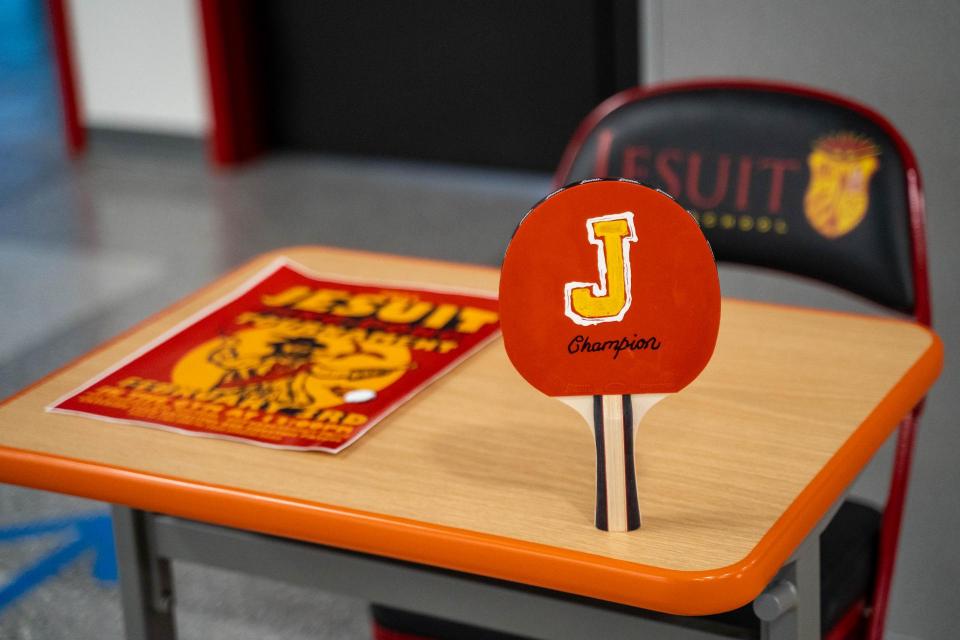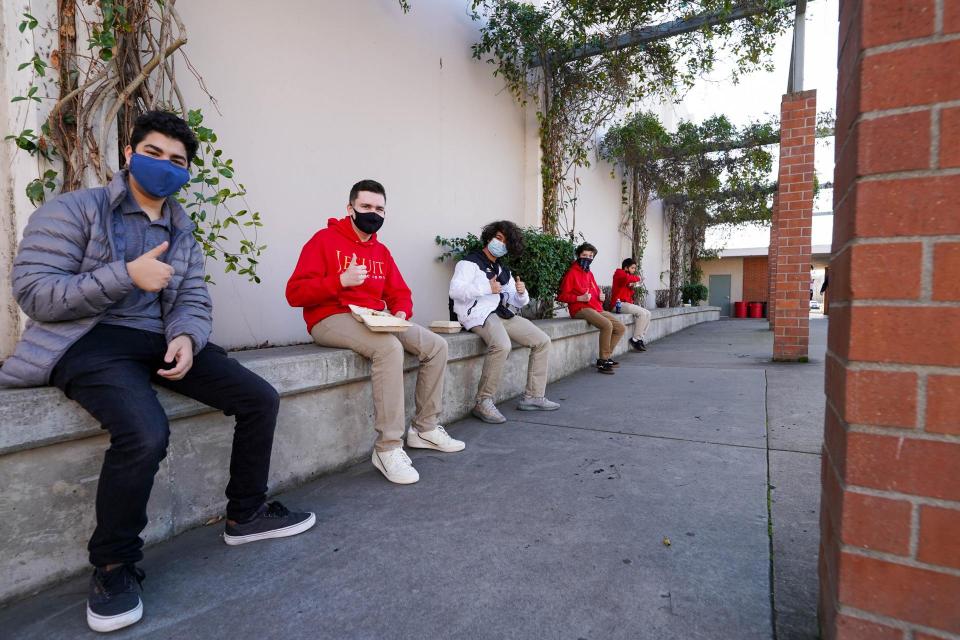Celebrating Black History Month within the Jesuit community
For 45 years, February has been celebrated as Black History Month. Also known as African American History Month, it is a time dedicated to the achievements and contributions of Black and African Americans.
In honor of Black History Month, The Plank would like to share, celebrate, and amplify Black voices on our campus. We asked both students and faculty members to reflect on the personal significance of this month and who their role models are.
In the retelling of history, sometimes a perpetual narrative becomes a single story — a stereotype that becomes the only way a group of people are viewed. Dennis Weaver ’22 describes what Black History Month means to him as it relates to the chance to explore the fullness of Black culture.
“It means a lot,” Dennis said. “Growing up as a young Black man or woman you don’t get to learn a lot about your culture in school. We learn about negative things like slavery and African countries being conquered. Black History Month gives not only Black people but everybody the chance to learn about the rich culture we possess.”
For Dean La Roddric Theodule, Black History Month is a reminder of the work that has been done by Black Americans and a chance to explore how their accomplishments have impacted the lives of all students.
“In terms of what Black History Month means to me, I would say that Black History Month is a reminder of the inextricable role Black Americans have played in many of the accomplishments that have been achieved in our country,” Dean Theodule said. “As an educator, it is also a reminder of how important it is not just for Black students, but for all students to learn about the plethora of ways that our lives are impacted by the inventions, achievements, and accomplishments of Black Americans throughout this country’s history.”
Although Head Varsity Football Coach Marlon Blanton knows the intentionality of Black History Month, he doesn’t confine Black History to one month, asserting how he hopes that changes in the future.
“I have never look at Black History as one month,” Coach Blanton said. “I know and understand that there is one month dedicated to Black History, the truth is history should be a part of our lives everyday. I look forward to the day when history is simply shared across platforms and celebrated as it should be. When I think of Black History Month, the same figures of history come to mind, MLK, Malcolm X and now Former President Barack Obama.”
The distinction of February being African American History Month reminds Chris Holley ’21 of how African American accomplishments are viewed as separate from American history. He discusses how this time is a period of reflection and how the past impacts him today.
“African American History Month to me is a reminder on how America doesn’t consider African American history as American history,” Chris said. “African American History Month is the one month in the year where we can celebrate the contributions African Americans have made throughout history in all aspects of human life. African American history to me is a time to reflect and appreciate all the sacrifices and struggles my ancestors went through to get me the freedom I have today.”
Elijah Beverley ’21 associates Black History Month with freedom. It is during this time that Elijah feels the freedom to fully be himself.
“Black History Month to me means being able to embrace who I am without feeling frowned upon,” Elijah said. “Embracing my culture in every aspect is what I love most and hold dearly to my heart.”
In the world of sports, athletes are using their platforms to raise awareness and advocate for causes beyond those that pertain to their professions. Dennis cites two of his role models who have inspired change through an examination of racial and social injustice.
“Some role models that I have are LeBron James and Colin Kaepernick,” Dennis said. “Both of these athletes mean so much to the Black community because they use their platforms to help incite much needed change.”
One of Coach Blanton’s role models is Jack Hemmert ’22, a student-athlete who has been involved in advocating for racial justice.
“My role model today that is challenging and inspiring me to be better is our very own student athlete, Jack Hemmert,” Coach Blanton said. “Jack is a junior here at Jesuit. His desire to have an impact on racism is very powerful. He will find a way to continue to move the deal in the right direction. I find myself listening and feeling his passion in this area.”
Dean Theodule reflects on the different role models he’s had in his life, starting with who he first looked up to before discussing the people who have influenced both in his professional and personal life.
“My role models are first and foremost, my parents,” Dean Theoldule said. “Our parents are our first teachers and often the first real hero/shero we have in our lives and I am certainly no exception. Outside of my parents, I would list W.E.B Dubois (the concept of the ‘talented tenth’ being one that has played a major role in shaping who I am and how I go about living my life and doing my job) and Steve Pinkston, recently retired longtime educator at our sister school and my alma mater Bellarmine College Prep in San Jose as role models that I have learned an innumerable amount of valuable life lessons from.”
For members of the Jesuit community, Black History Month proves to be a celebration of culture, a celebration of the past, of freedom, and of hope for the future.



